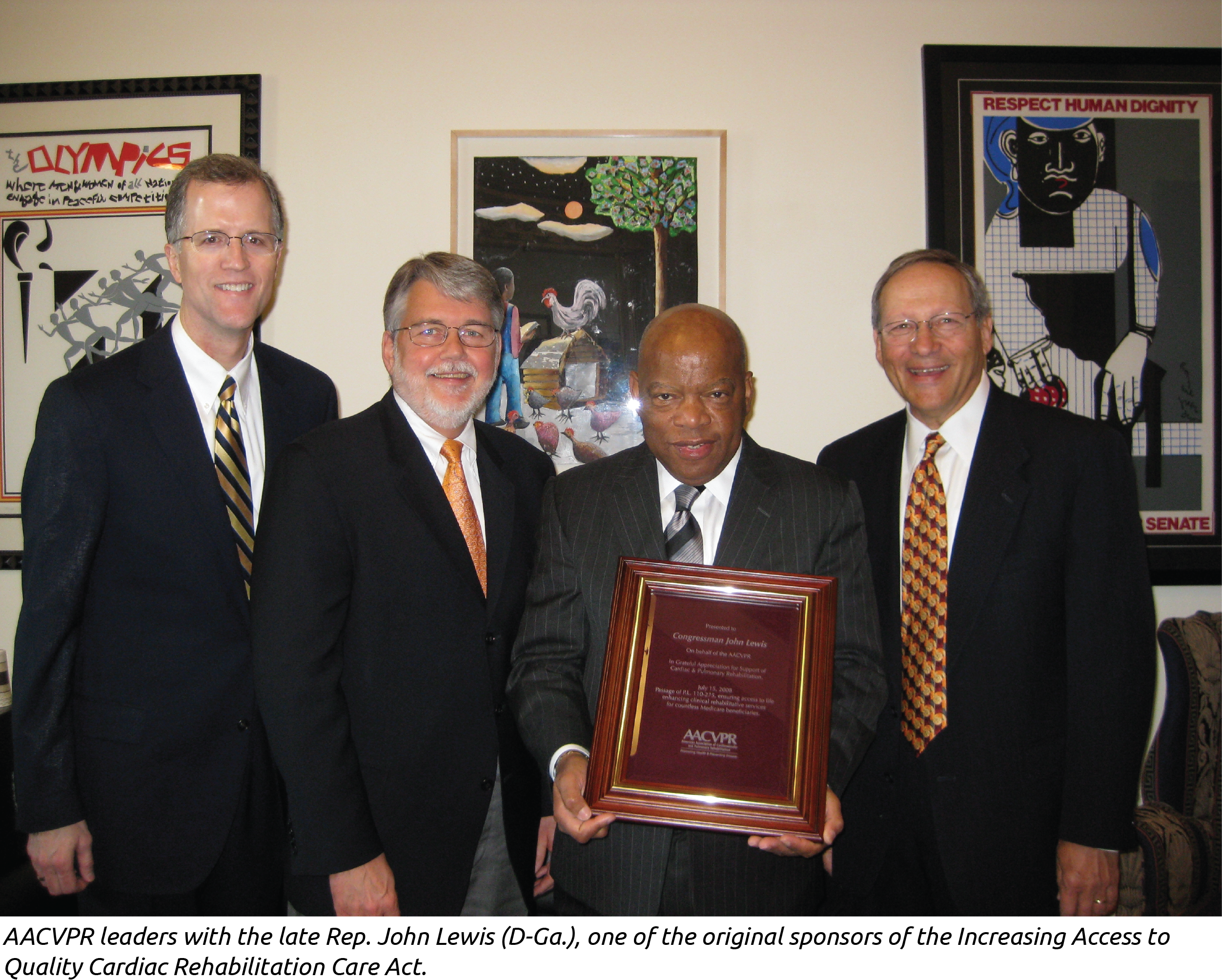By Karen Lui, RN, MS, MAACVPR

AACVPR commits ongoing resources to improve CMS (Centers for Medicare & Medicaid Services) regulations for cardiopulmonary rehabilitation services.
Although the work never stops, those efforts hit a crescendo each March during the Day on The Hill (DOTH) campaign. Out of necessity due to the COVID-19 pandemic, the event has evolved from a whirlwind of in-person lobbying for one or two days at the Capitol to a more measured pace of virtual sessions with lawmakers over the course of a few weeks.
Regardless of what shape it takes, DOTH’s objective remains the same: to advocate for change at the legislative level that benefits patients and providers in the CR/PR community. For 2022, the focus of the fight spilled over from previous years as participants continued to push for headway on two key proposals in Congress that would increase the utilization of CR/PR services in multiple ways.
Anatomy of Two Bills
HR1956/S.1986 - Increasing Access to Quality Cardiac Rehabilitation Care Act
We believe that, as written, this bill will allow nonphysician practitioners (NPP) to:
- meet the CMS direct supervision requirement,
- provide prescribed exercise,
- establish, review and sign individualized treatment plans (ITP),
- be responsible for and involved substantially in directing the progress of individuals in the program.
Importantly, if this bill prevails, CMS will revise the current provisions for CR/ICR/PR based on how CMS interprets the intent of the new law. It is the role of CMS to develop regulations based on its interpretation of any Medicare bill passed by Congress. Therefore, final Medicare regulation changes will not be determined until or unless this proposal passes.
HR3348 – SOS: Sustaining Outpatient Services Act
This measure is intended to provide payment neutrality for hospital-based CR/PR services, instead of allowing location to determine Medicare’s reimbursement amount. Currently, it is difficult for these services to financially expand capacity to meet the growing need. This has resulted in:
- longer delays in enrollment after hospital discharge,
- inability to add services, such as SET for PAD and maintenance rehabilitation programs,
- reduced ability of these services to effectively contribute to the hospital goal of reduced 30-day hospital readmission rates,
- inability to expand to meet patients where they live,
- inability to eliminate obstacles of travel, parking expense and other urban barriers to participation in CR/PR programs.
Both pieces of legislation are in the best interests of our patients, and worth fighting for. AACVPR is fortunate to have a team of advocates who recognize the importance of these changes and are passionate about seeing them through. This spring, a total of 118 AACVPR members joined in the effort by attending 109 Zoom meetings with lawmakers and/or their health staffers. There’s no such thing as too many advocates, however. If you are interested in investing in your future as a CR/PR professional by lobbying for change, DOTH always welcomes fresh faces and ideas.
 Karen Lui, RN, MS, MAACVPR is the founder of Advocate4Action, AACVPR’s advocacy partner.
Karen Lui, RN, MS, MAACVPR is the founder of Advocate4Action, AACVPR’s advocacy partner.